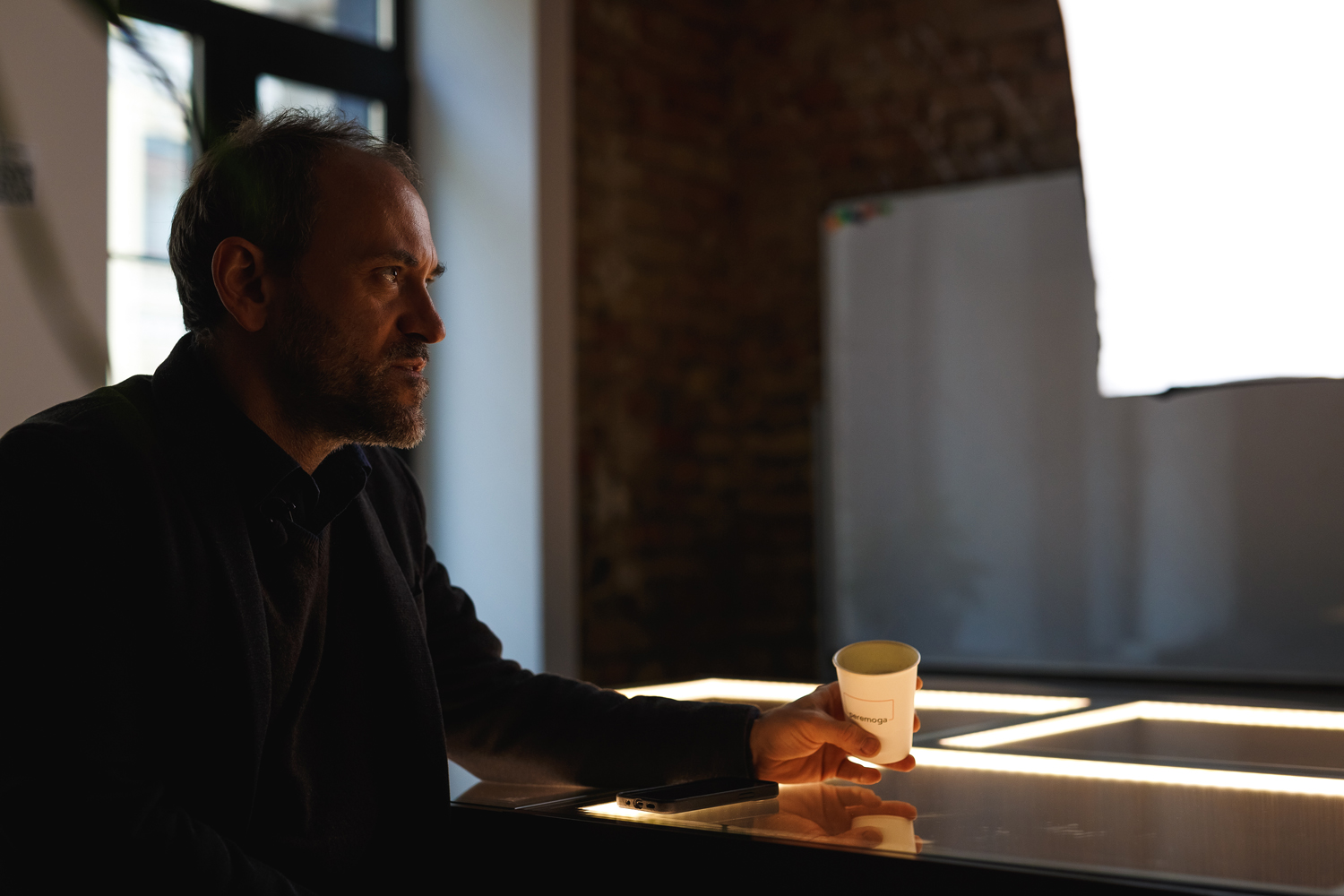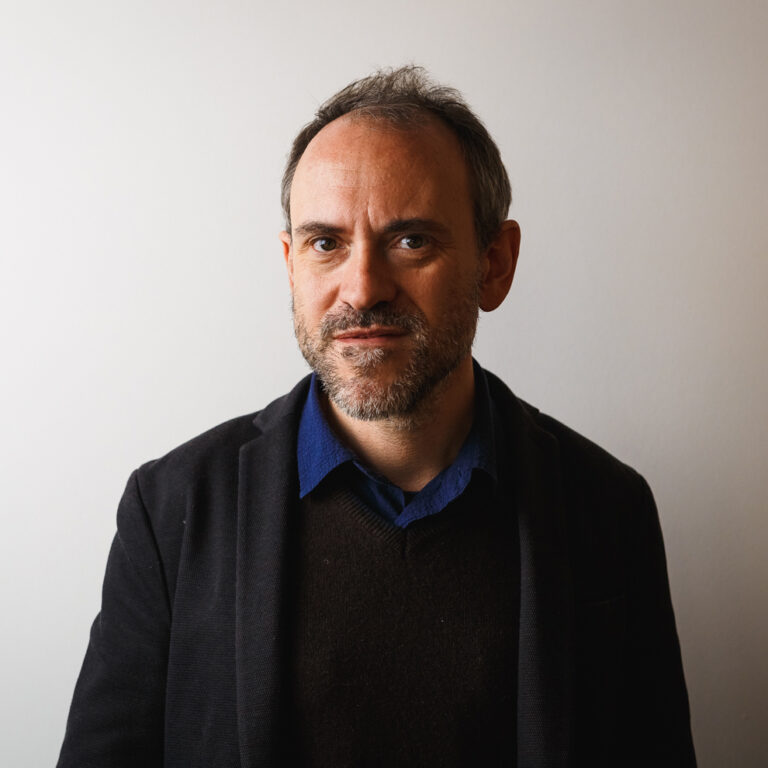
The third episode of Ukraine Through The Eyes of Reporters features Gulliver Cragg, British journalist, who has worked for the French radio in English, France24 TV channel, and after moving to Poland, started to cover Poland, Ukraine, Hungary and Belarus. Since 2014, he lives in Kyiv. In this interview, Gragg reflects on his experience of getting to know the country during the Revolution of Dignity, shares thoughts on the journalistic objectivity, and uncovers his love to the Ukrainian Railway.
International journalists who report from Ukraine play a crucial role in helping the world see the truth about the unjustified and brutal Russian war. Ukraine Through The Eyes of Reporters is a series of interviews aimed to highlight their work and understand how they approach their duty.
What was your perspective on Ukraine back then in 2014, as a person who didn’t live here but covered the news from this country?
Yes, I haven’t lived in Ukraine [at that time], but I have been covering Ukraine since 2010. The first report that I did about Ukraine was the election campaign for the 2010 election, when Yanukovych won in a more or less free and fair election. And after that, I was following the development of the Yanukovych presidency, being very much aware of the increasing levels of corruption and fear that there would be an authoritarian drift. When Maidan first started, I had a firm stance: “Get rid of these bastards if they leave their promise to sign the association agreement with the European Union.” I did a report about the agreement in August, when the Russian closed the border and made it very difficult for Ukrainians to export to Russia. I was thinking, it would be so amazing if people protested against this terrible behaviour of the Yanukovych government and oppression from the Russians. And then it did happen. And we were supper excited. At the beginning of the Maidan protest, I remember thinking: “Wow! Common guys!” I was really surprised and pleased to see so many people coming out onto the streets to protest. I believed it was absolutely right to protest against that government, because it was clearly stealing money from Ukrainian people in huge quantities. In 2013, I did a report in Donbas about “kopanky” (illegal mines – ed.). And it seemed pretty clear that Oleksandr Yanukovych, Victor Yanukovych’s son, was taking a huge percentage of money from this illegal mining, which is not only illegal and also extremely dangerous. And it really felt like the mafia was running the country. So when the Maidan protest started, I was pleased that people were protesting and standing up for their rights.

Do you remember back then what was the perception of the events in Ukraine in France and other countries that you reported to?

Not really, because I was in Ukraine. I know it was a huge story. Broadly, people felt that they were on the side of the Ukrainians who were standing up for the democracy and European values. There was definitely a perception also of Ukraine as a divided country between West and East, where people in the East would be pro-Russian and supported Yanukovych, as well as the feeling that these people’s voices needed to be heard, too. And to some degree people’s view about it was a bit simplistic, because it’s a bit more complicated than that. But it’s not completely wrong, either. Now, after the Russian invasion in 2022, things have changed quite dramatically in terms of the numbers of people who have pro-Russian attitudes. There’s not so many.
You’ve decided to stay in Ukraine, because you said that Kyiv is your base, but you’ve covered and travelled around. What made you actually return here?

To some degree, it’s just inertia. I like living in Kyiv, I’ve got friends here, and my life is kind of here. But there was a time in the intervening years between 2015 and 2021, when I would go to Donbas for an update or there would be some kind of event happening in the war. And I did more reporting outside Ukraine in those years. Because there were other stories in Ukraine apart from the war. There were a few elections in Poland, in Hungary. And then in 2020, Belarus, of course, became the biggest story in my zone. And so I thought about moving back to Warsaw at some point, but basically there didn’t seem to be any good reason to do that, as one could be based in Kyiv and make frequent trips to Poland.
Do you see any difference in how media reports the war now compared to 2014? What is your general overview?
I think it’s much more important now, and I am not sure that there’s much chance of media interest fading away as long as the threat of something worse happening. I think everybody really wants to see what is going to happen and really anxious to see how and when this going to end. But if it descends into some frozen conflict and things aren’t changing, it’s quite hard to keep people’s interest, because there are a lot of other things in the world going on that are changing. But I don’t think that interest is going to fade now. Look how many international media were in Izium, it was almost like a media circus. It was quite hard to film without having journalists in your shot, because everybody was there. They discovered 120 graves in Lyman, where people died, similarly exhuming them in order to investigate. And that didn’t get nearly as much attention, because people think: “OK, well, it’s basically the same.” And there are other sites that have been found, and you need to be able to cover these things and to make reports about them in order for people to realise the full scale. And sometimes you just have to think: “Well, I’m going to do that again. I am going to make a report that is going to be very similar to the one that I made in Izium.” But we have to do it, because this is what’s happening and probably lots and lots of people did not watch the first report that you’ve made, and so they won’t be thinking you’re just repeating yourself. And also you can find obviously different words to tell the same story and different pictures.
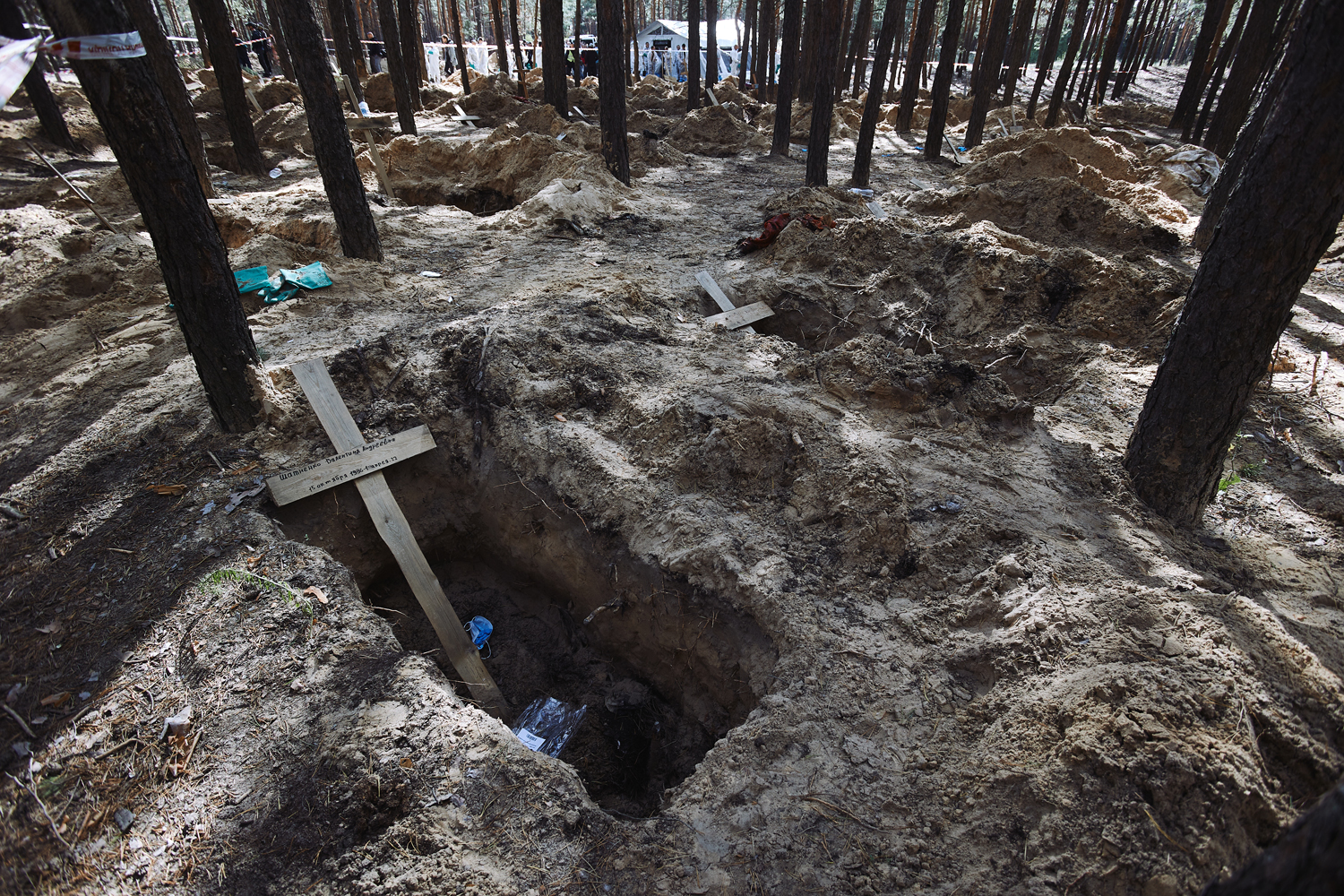
What’s actually the process of finding a different angle to stories that are so similar, for international audience specifically?
I noticed recently that a lot of reports these days start with [the name of] some town that’s been liberated and there’s a huge damage and the voice-over says something like: “Izium is in ruins.” We can’t just keep saying that, making the same point. You can try to be a bit more specific. You can say something like: “Out of x-thousand homes in Izium, x-thousand considered not-rebuildable.” Sometimes you have to dig out a bit more information in order to say something more precise rather than just saying a cliché phrase that the town is in ruins. But you don’t always have time to do that.
Could you walk me through the time of the past winter, when the tension was rising and more reporters were coming into Ukraine? What were your personal predictions and opinions at that time?
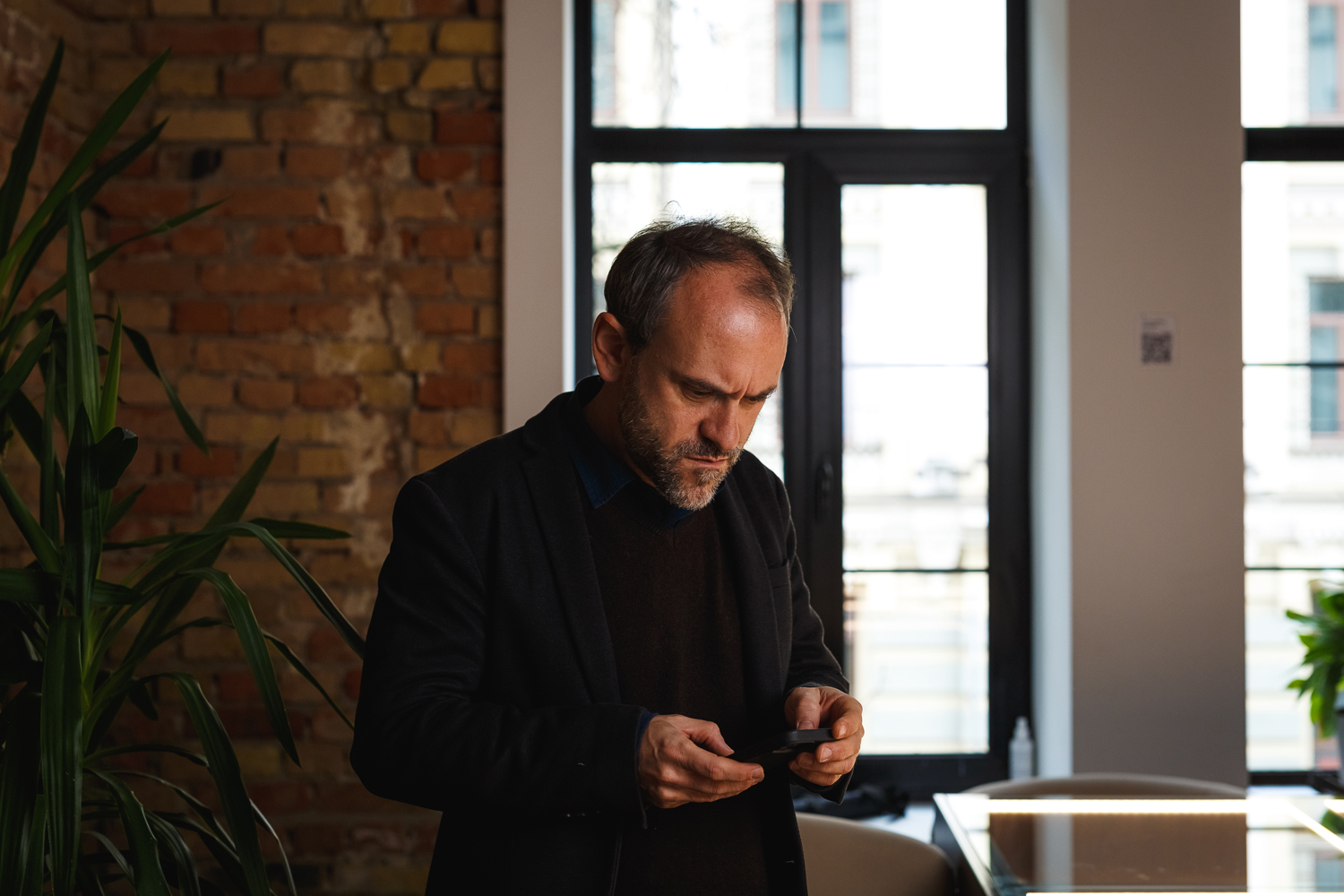
I was here [in Kyiv] most of the time, but I was in London for Christmas, when I had my darkest thoughts about how I thought Putin was really going to go ahead with it. I worked out a logic that he had come to the conclusion that Ukrainians would never again vote for a pro-Russian government. And he’d been hoping, up until that point, that some Medvedchuk-type of character would eventually be elected President of Ukraine, and he’d be able to control Ukraine that way. If he had come to the conclusion that it could not be done by political manipulation, and he could not accept the idea of Russia losing control of Ukraine, then he would definitely try to do it by force. I remember having conversations with people in London who were very incredulous and thinking: “ Of course, he wouldn’t really do it.” And I was the guy who said: “No, I really think he might.” And then in January, I started to think that Putin must know that this would ultimately be a disaster for him. And I became very confident that that was a massive bluff, and it wasn’t going to happen. I stucked to this view until the speech on the 21st of February, when he recognised the DNR and LNR. And then I knew, from that point, it was clear that they were going to attack. But even then, I thought maybe they would be just attacking Donbas and try to destabilize the country with cyberattacks elsewhere. I was still surprised on the 24th of February, when right away they were attacking not only Kyiv, but targets in the Western part of Ukraine as well.
Could you describe a difference between a war reporter versus just a reporter?
There are people who are specialized in conflict reporting. You go to wherever there is conflict in the world. A lot of journalists talk about the kind of adrenalin rush or addiction that you get doing this kind of thing. I don’t have this at all. I didn’t become a correspondent in Ukraine in order to be a war reporter. I don’t need to change my whole attitude to life, to risk because of that. In 2014, I definitely did go to some places where there was shelling. I went to Debaltseve, when it was really being shelled, to the northern parts of Donetsk. I actually haven’t been to anywhere that’s been shelled as intensely as those two places in 2014-2015. Because I deliberately avoided it. In between 2015 and 2021, there was the frontline where it was quiet most of the time. And you could go right to the front line to the trenches that would be line one or line zero. Just a few hundred meters to the other side, there were Russian forces. Nowadays, I don’t do that, because it’s much hotter and it’s much more dangerous.

What’s your advice on how not to fall into the trap of repeating different propaganda narrative that are really prevalent in this specific war? What is objectivity for you?
To tell the truth. The cliché expression is that your job as a journalist is not to say: “It’s raining.” You have to go outside and see whether it’s raining. To be objective means that we have to recognize the fact that the Russians deserve less credibility than Ukrainians, because the Russians lie much more often. But that also doesn’t mean that I can take the Ukrainians words on everything. I recognize that the Ukrainians are also engaged in the information war, and they might think that not always telling the truth is their best strategy. But you as a journalist have to bear that in mind, and you have to be telling the truth. Sometimes telling the truth about something reflects badly on Ukraine in some ways. Because at the moment, Ukraine has a much higher level of credibility than Russia. But it doesn’t have top perfect credibility. I believe it’s really important for [the Ukrainian government] to have a reputation of being the guys who tell the truth.
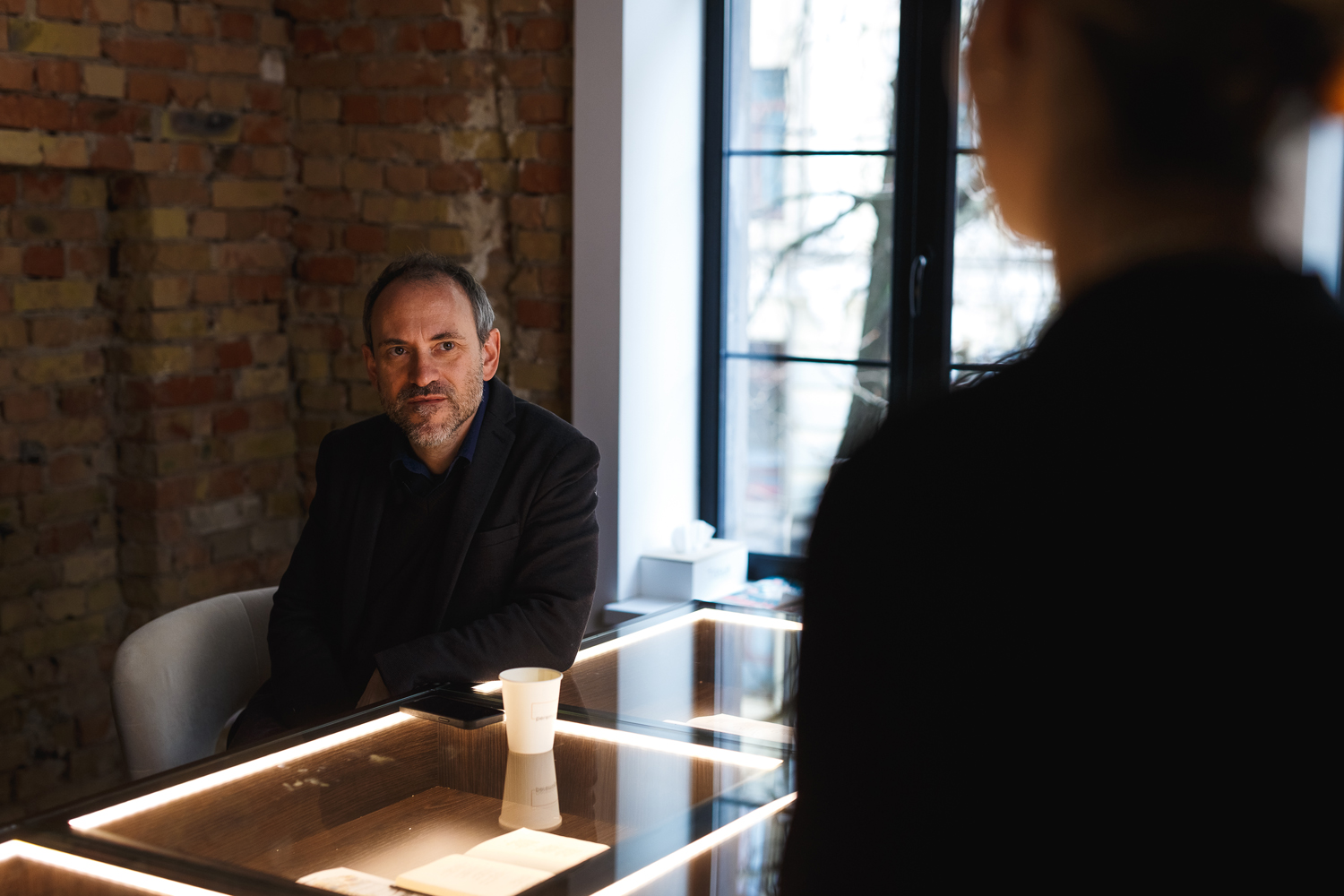
Do you have examples of the stories from Ukraine that are currently not being covered enough in the Western media, particularly in your opinion?
People often complain about certain stories not being covered enough, because they are not coming up on their algorithms or on their social media, and they are not gaining the most prominence. If you do a specific search for a story about Ukrainian culture or Ukrainian music, I think that you’ll probably find that somebody somewhere is covering it, because there’re so many reporters in Ukraine at the moment covering all kinds of stories. It’s probably only natural that the stories that are getting the most attention are the ones that have the most impact on the likely future development of the war, which is the offensive in Kherson, the human rights violations and tortures. Everyone’s attention has turned to what’s going on on the military front, what’s going on in Kherson — A. And B — the long range attacks on the Ukrainian infrastructure, the power cuts and everything. That has probably distracted attention from the tortures, human rights violations, absolutely awful things that happen under Russian occupation, particularly in Kharkiv oblast, because now so much of that is being revealed. I think there should be more attention on that. But probably if you look up for stories about that, there are stories being generated. They are just not getting the top headlines, because people’s attention is focused on the latest developments.
What do you think of the French government’s response to the war?
I get the feeling that there’s stronger and stronger consolidation over pro-Ukrainian position among the French elites. People like François Fillon, who ran for president and was defeated by Macron, many years ago in 2017. These are people with close ties to Russia. Jacques Chirac liked to develop good relations with Russia. Catherine Colonna, who is now the Foreign Minister. I think these are people who’ve gone on a journey from changing their attitude to Russia. So I think their support for Ukraine is getting stronger, but I am totally not an expert on French politics and I don’t really know. In terms of public opinion, you’ve got an anti-American left in France, who just instinctively wanting to see something bad and something to blame America for and who will try to say: “Of course, Russia is bad, but America is bad too, they shouldn’t have expanded NATO,” and all of this rubbish, and they don’t realise how much they’re just pirating Russian propaganda about this stuff. I think that a lot of people in Western Europe had a certain sort of weariness about anything that seems like Ukrainian nationalism, because they compare it to their own nationalisms in their own countries, which are much more about being racist, authoritarian, anti-democratic, anti-European. Ukrainian nationalism is a nationalism of defending your country, because your country is under attack The fact that in Ukraine you can be a nationalist and pro-European is like: “Oh wow!”

What do you advise to journalists who are fairly new to what’s going on here? What is the background information they need to realise or collect before?
I think people need to be a bit weary of what Ukrainian officials say and check information, but at the same time not be too suspicious of them and not think that they are trying to push some narrative that is really genuinely fake. One really important piece of advice that I have to a journalist who’s coming here just for a short time is to bear in mind that everybody who is living here is going through a trauma. And it’s really, really hard. And if you’re working with Ukrainian fixers or any Ukrainians you’re speaking to, bear in mind, that the person you’re speaking to can have a brother on the frontline, or somebody they know might have died. And you really have to approach all people with great sensitivity. Journalists come here and they are also really stressed. They’ve got the deadlines, they are under a lot of pressure. But you’re not under as much pressure as your Ukrainian fixer, almost definitely. And also not to be too intrusive, when interviewing people. What people also need to realise is that it’s more the Ukrainian speakers in Ukraine who felt like they were oppressed, who felt like they had to feel embarrassed to speak their own language for years and years and years. And it’s a really long journey that the Ukrainian language is on and it’s positive discrimination that is going on in terms of discriminating in favour of the Ukrainian language. And that also a huge proportion of Russian speakers in Ukraine would be very happy if their children spoke Ukrainian.
What’s your favourite thing, or part of Ukraine?
The trains. I love riding on the trains. They are so comfortable. I love the very strong instant coffee in the morning. I already loved Ukrzaliznytsya before the war, but now I just think that they have been absolute heroes in evacuating people and keeping the trains running even when it’s dangerous, even when the power supplies cut. I came back on the train from Chełm on Tuesday morning. I think there was an air alarm on at the time and the train was coming into Kyiv and throughout the night there’ve been several across Ukraine. The train wasn’t even on time, it was three minutes early. How do they do it? In England, if the temperature falls below zero or above thirty, the trains don’t run, because they say the weather conditions don’t permit it. In Ukraine, it is just unbelievable how they manage to keep everything going.

In terms of the cities – I love Lviv. Every time I go to Lviv, I just think: “Wow, this place is just so beautiful.” I think it’s like maybe the most beautiful city in Europe.
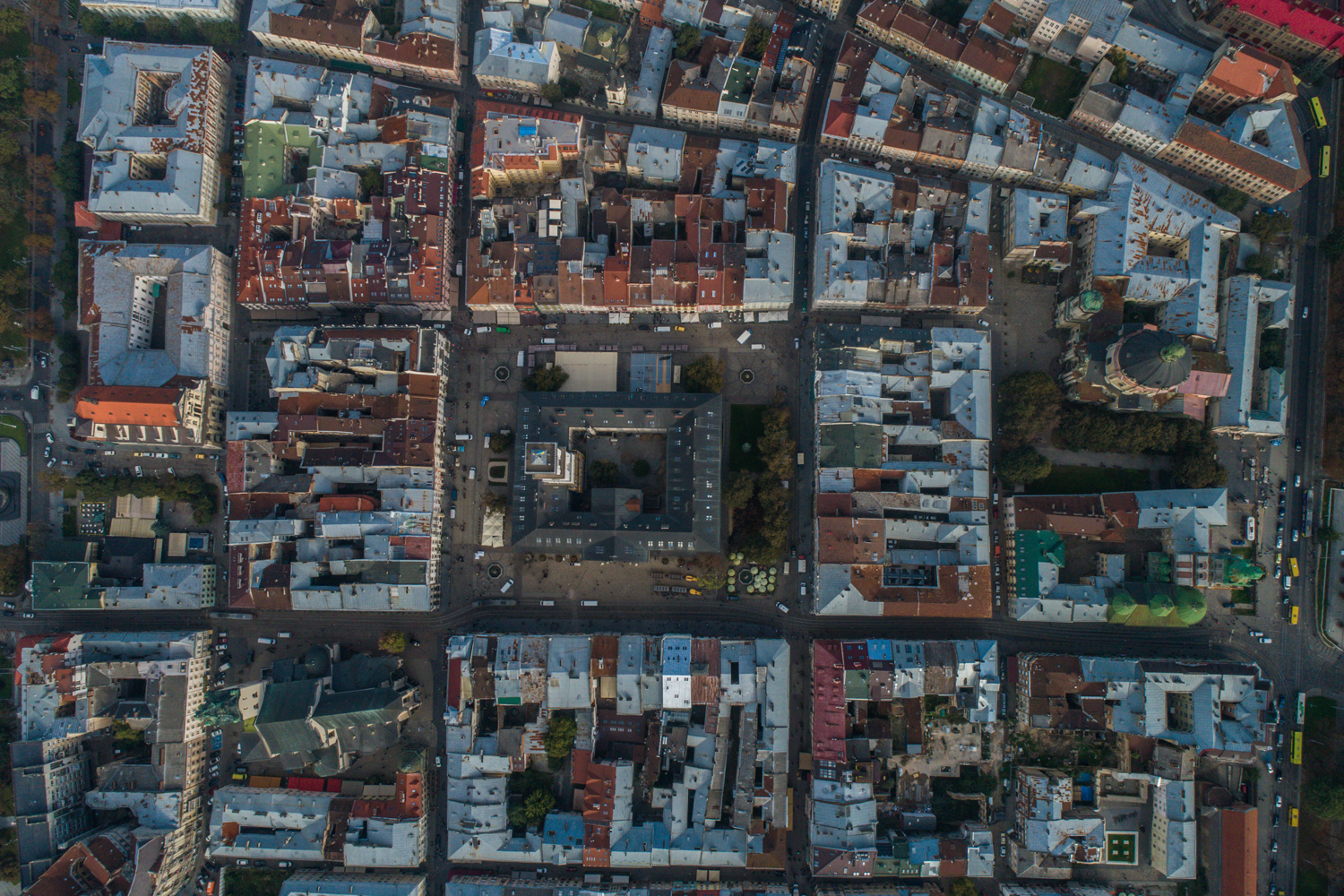
Do you have any words to say to the Ukrainians?
There’s not very many of us foreign correspondents, who live in Ukraine and who’ve been living here for a long time, but for a few of us who are here, this is also really traumatic what is going on. There’re a lot of foreign journalists who inevitably are coming here and who are looking at this a little bit as outsiders and finding it in some way exciting, and in some way fun, and in some way good for their careers. I don’t feel like that at all. I just want it to end as soon as possible. And to end with Ukrainian victory. I think probably most of the civilized, democratic Western world is rooting for Ukrainian victory. This was completely unprovoked invasion and this is something that everybody should be really standing together to fight against. And I think that you can perfectly well be a journalist sticking to the principle of objectivity and of telling the truth, while also being quite clear about the fact that we are not on Russia’s side here. Because clearly this is just absolutely unjustified, brutal and horrific invasion of a sovereign country. Also, what Russian armed forces are doing here, it’s just absolutely shocking and awful. And of course, we all want it to end as soon as possible.
